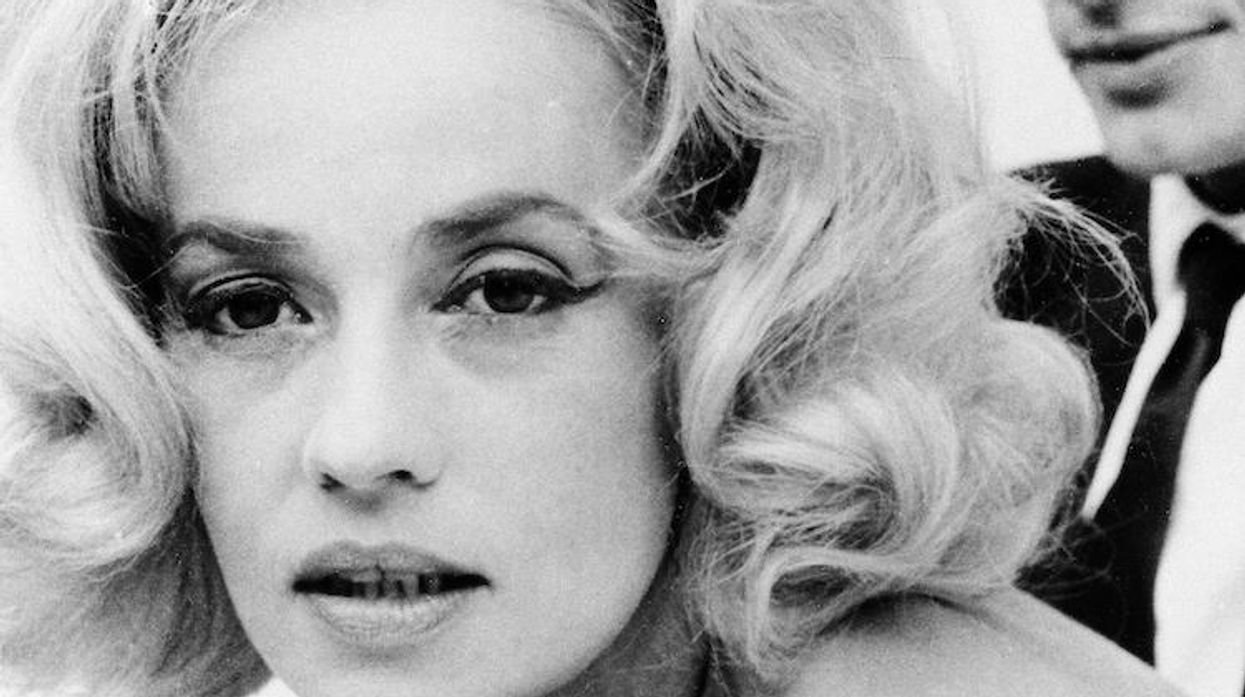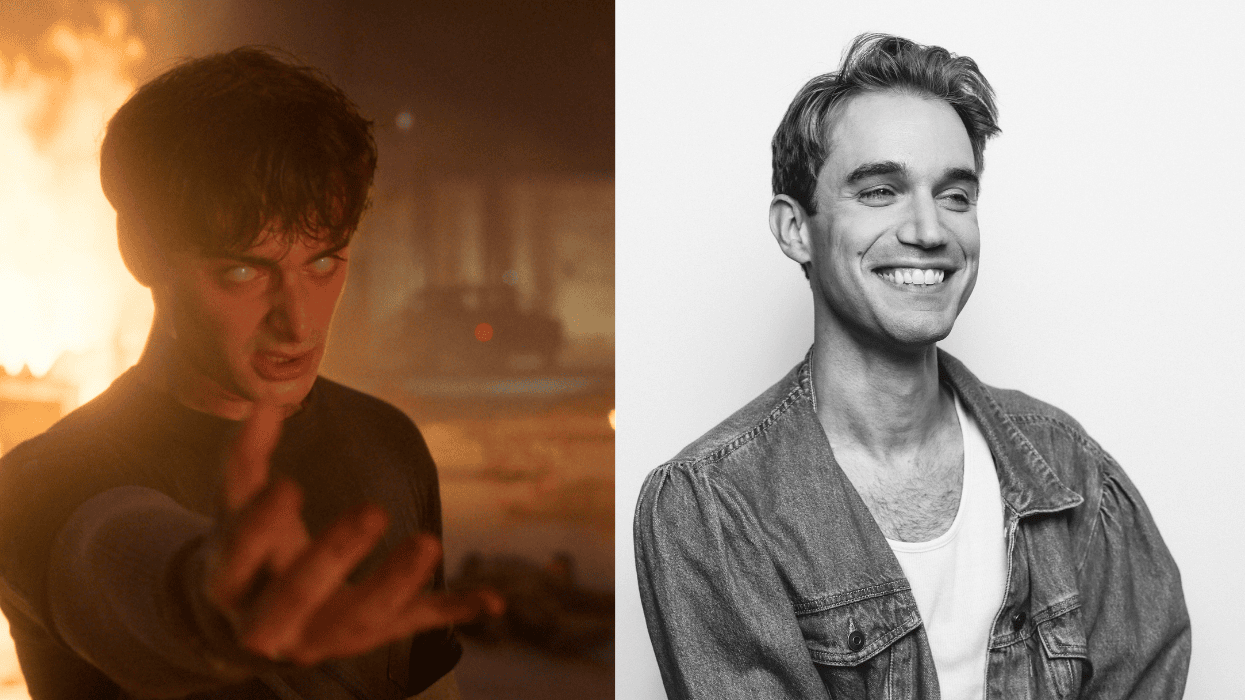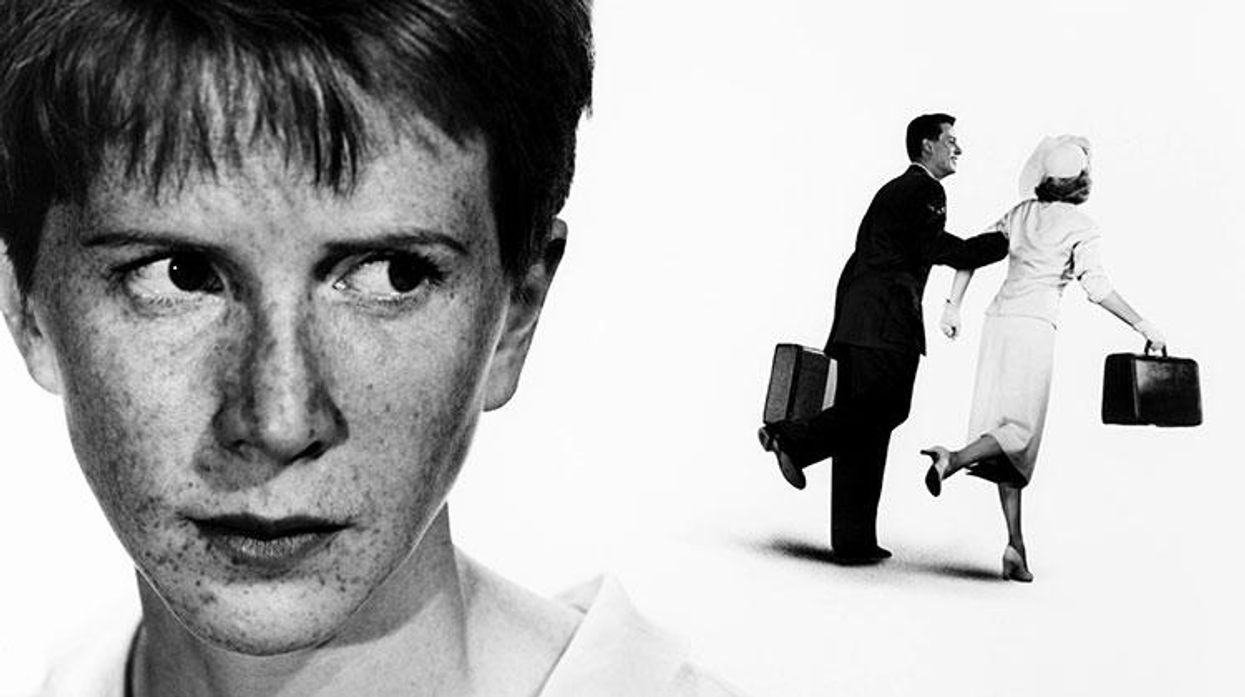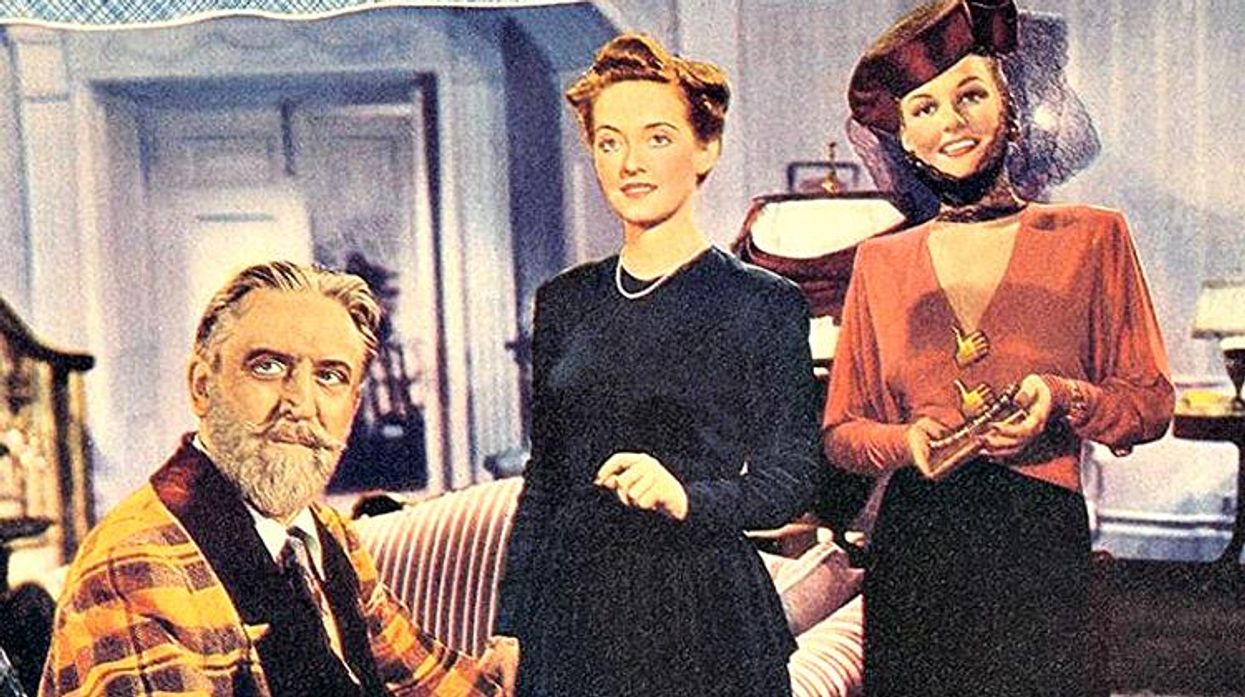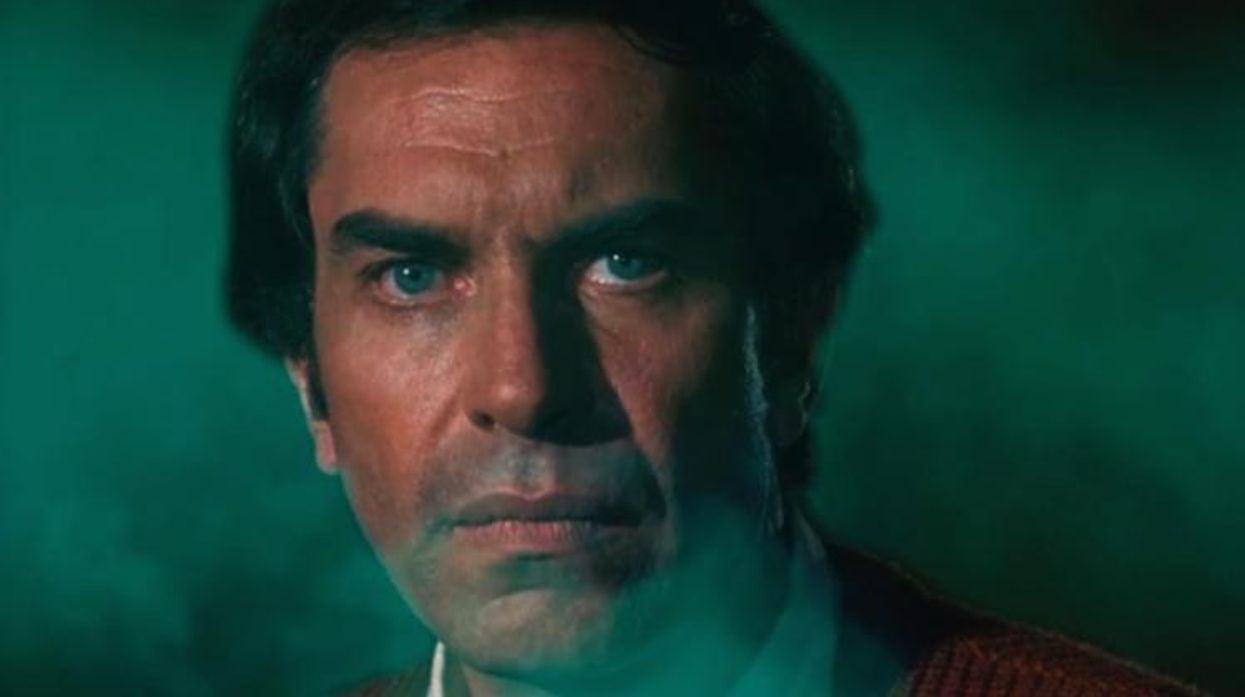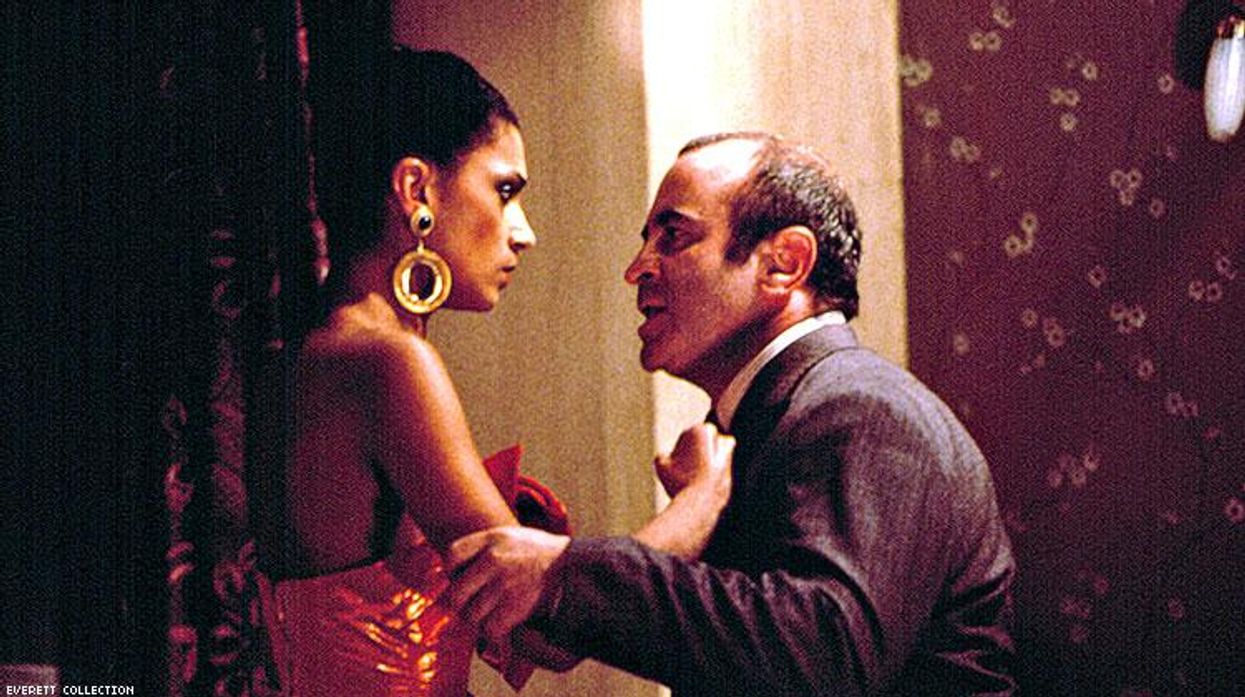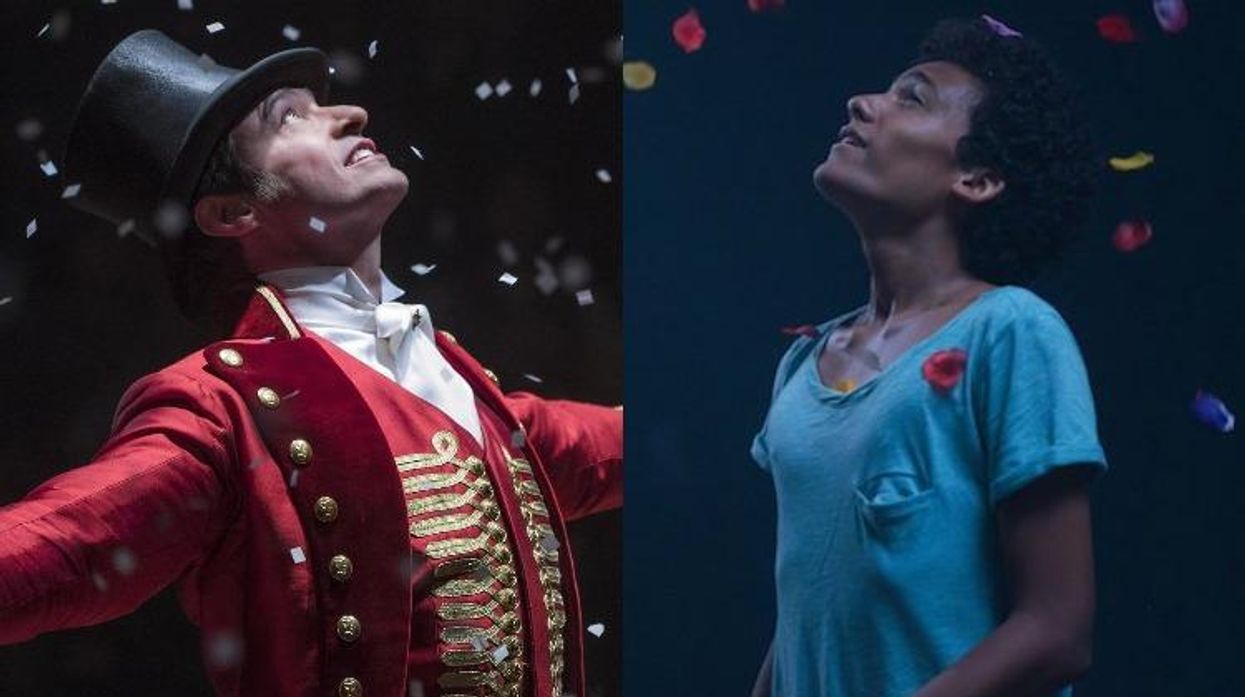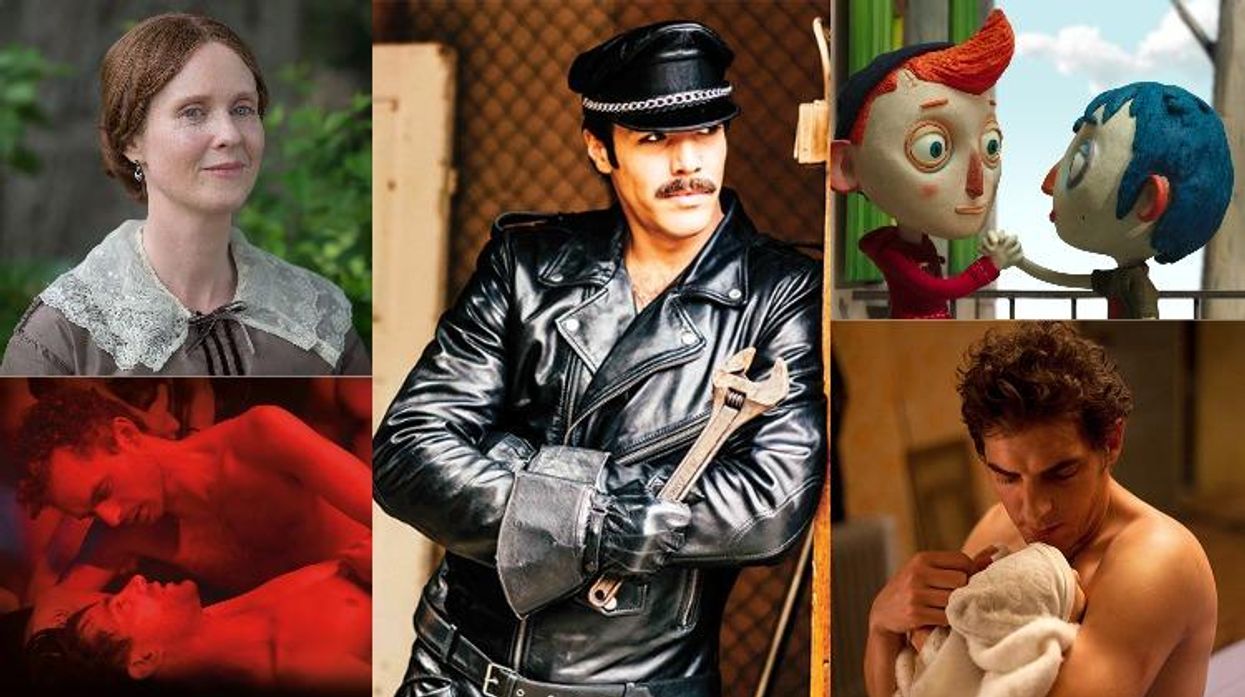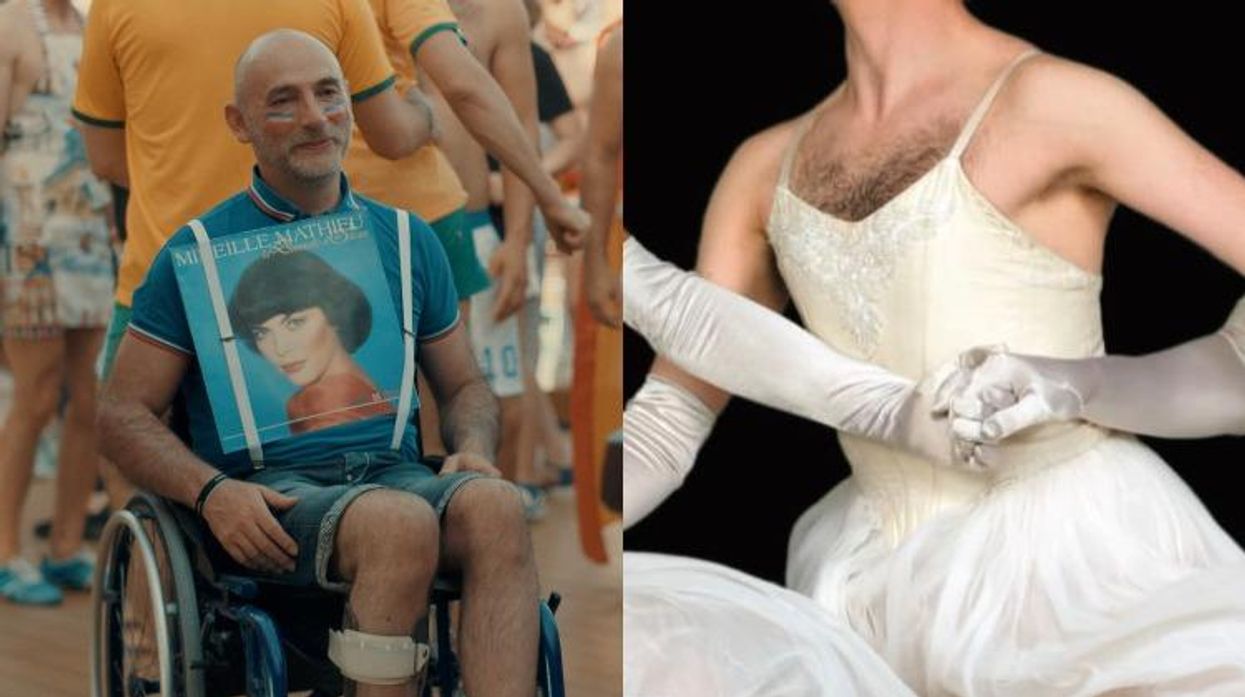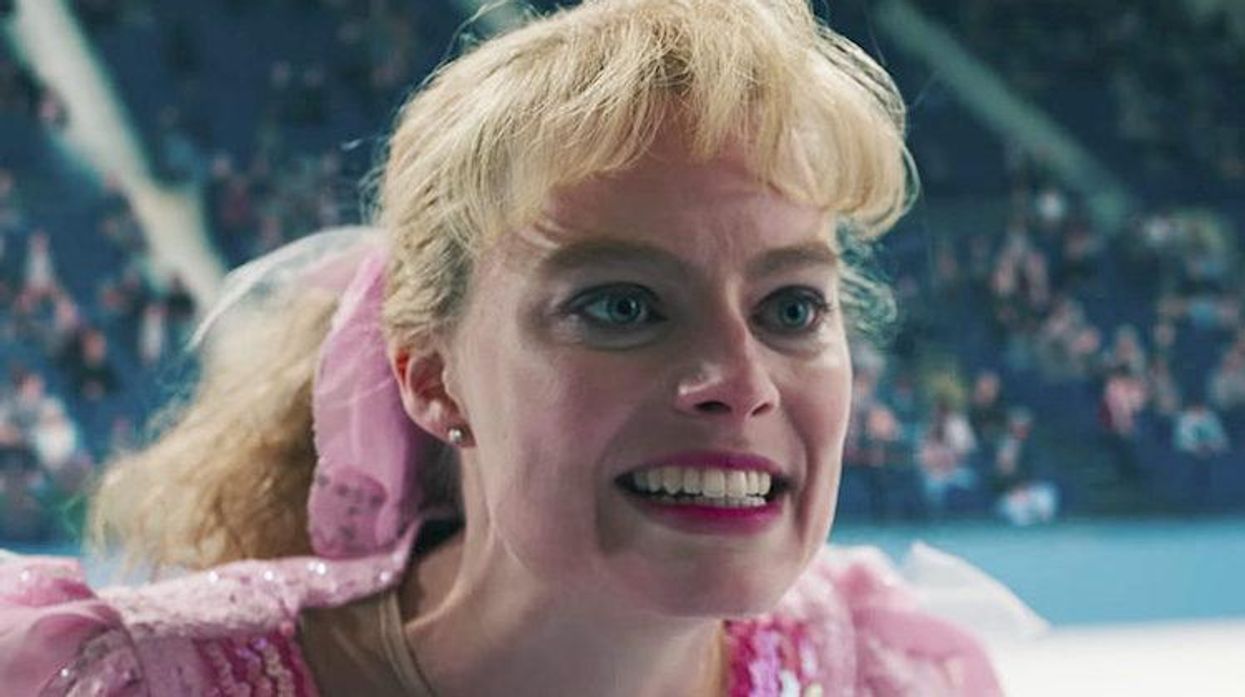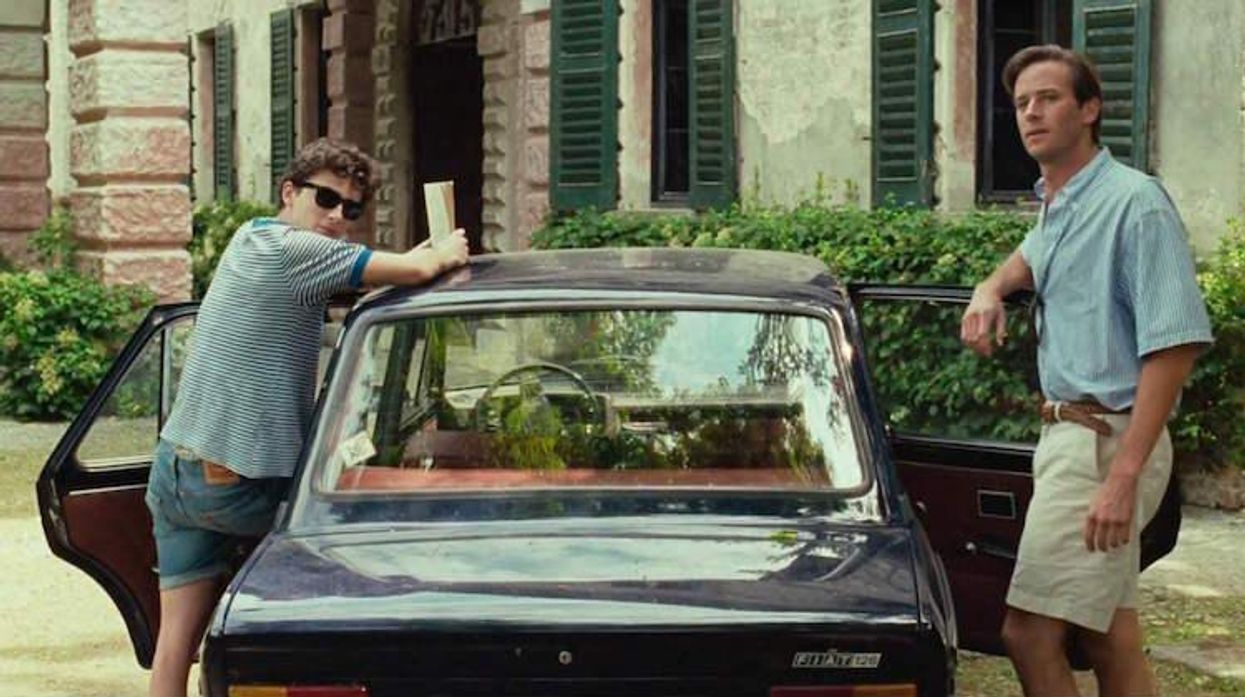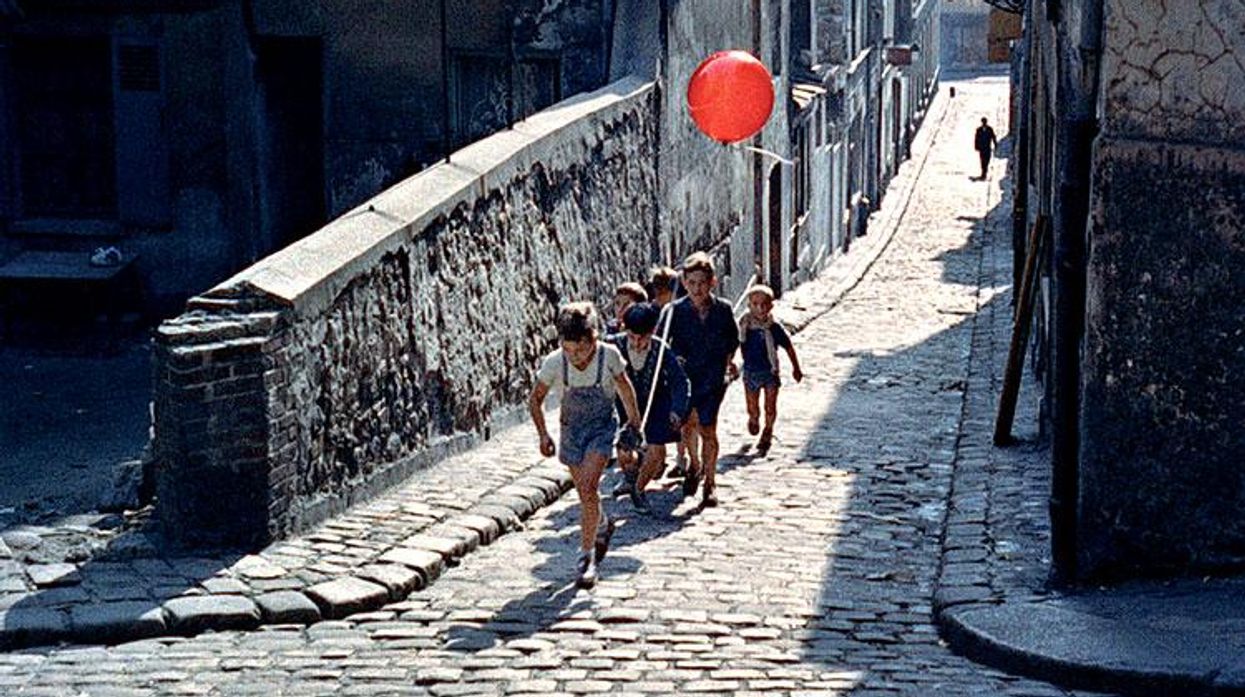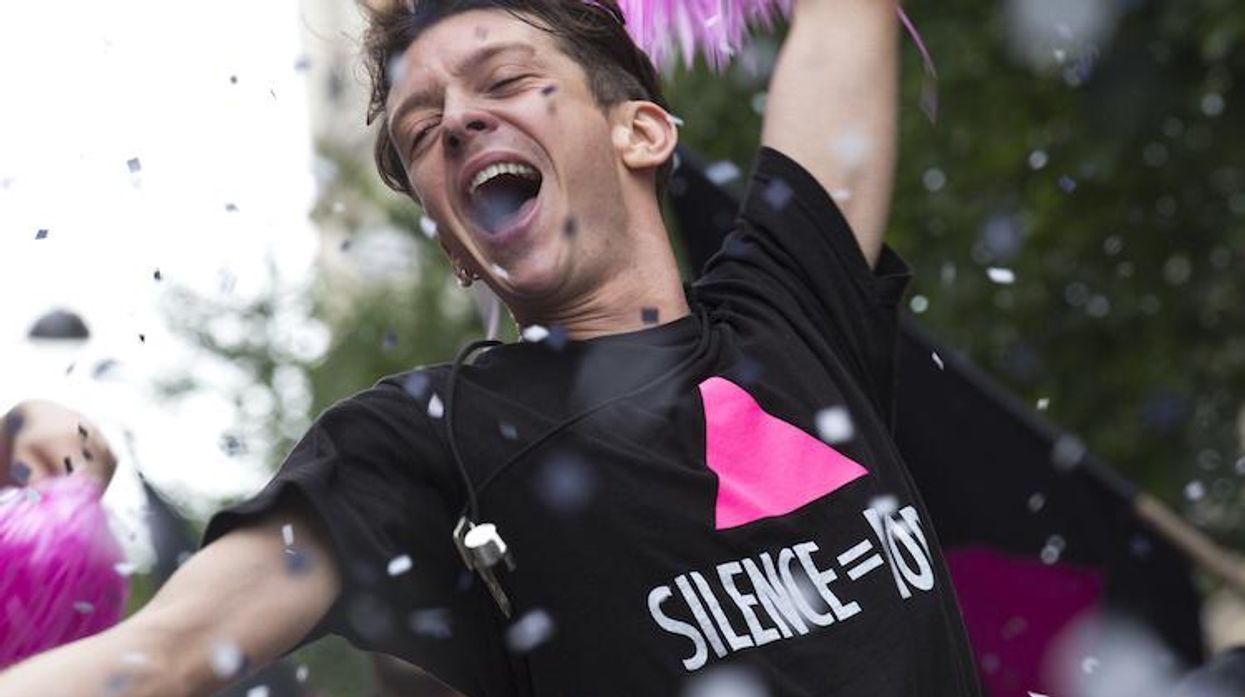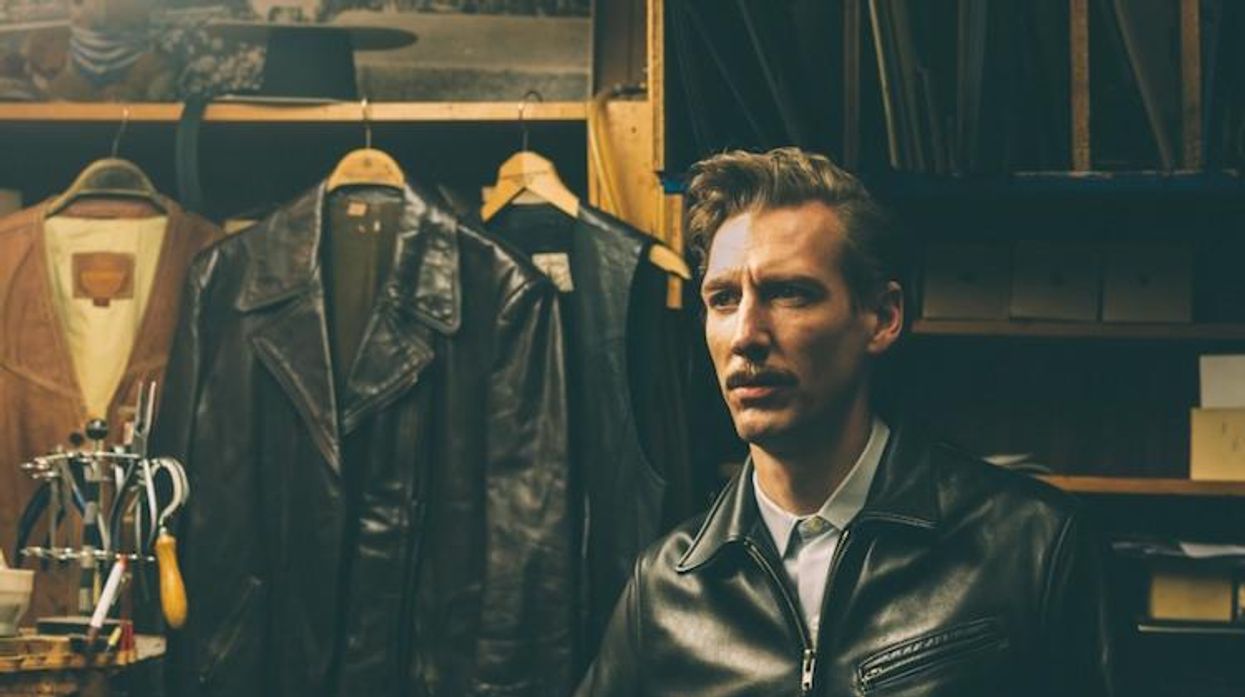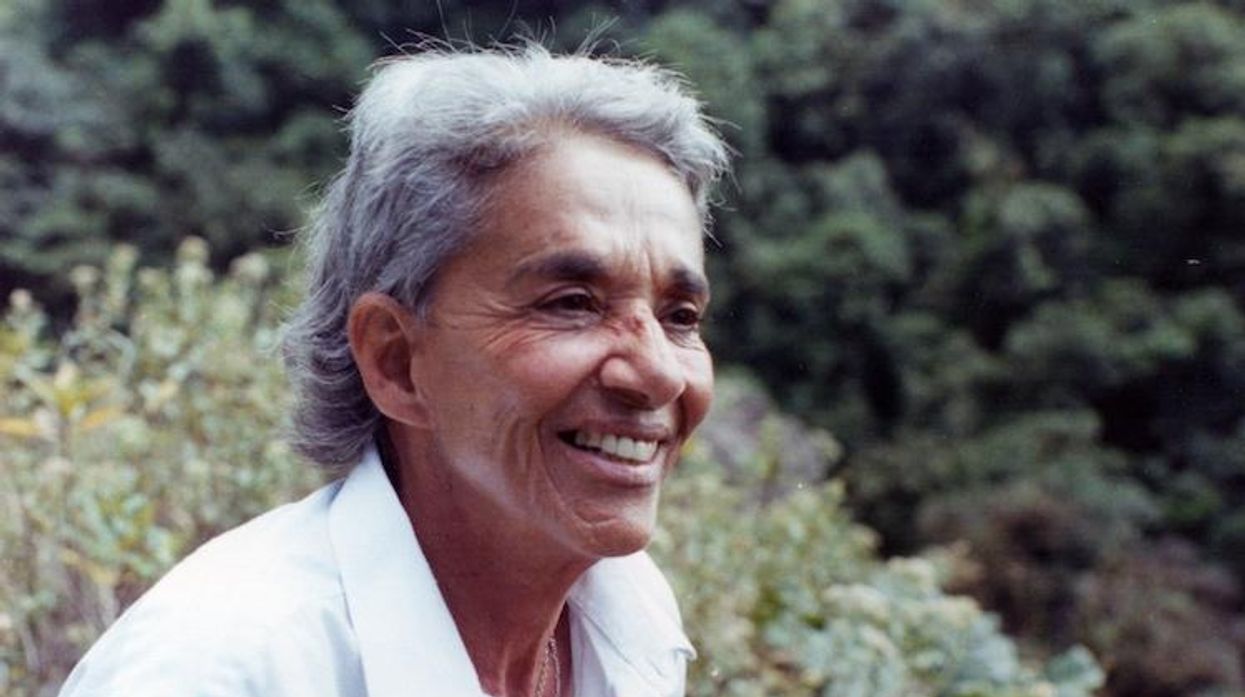Jeanne Moreau deserves tribute here because she was one of those female movie stars who win gay male fascination partly through her upfront sexual allure and largely through her vicarious representation of yearning desire.
Who would be crude enough to call the object of this fan/star relation a "fag hag"? But anyone not scared of the term would recognize how much female companionship--ally-ship--matters. On screen, Moreau, who died July 31, represented something that gay men often suppress or look to find in socially accepted ideals. Two films best illustrate Moreau's possession of these qualities: There's the moment in Francois Truffaut's Jules et Jim (1962) where her Catherine perplexed the straight buddies (Oskar Werner and Henri Serre) who wonder what makes women mysterious. Their threesome represented a recognizable bisexual frisson--especially in the playful moment Catherine dons a Newsboy's Cap (also known as a Bandit Cap) then paints-on a fake moustache to fool straight-laced folks on the street. This key moment in movie androgyny makes Moreau immortal.
More importantly, Moreau represented the intensity of vicarious gay sexual identity in Bay of Angels, Jacques Demy's 1963 testament to vicarious sexual experience. After his debut film Lola (which starred Anouk Aimee), Demy launched a gay-friendly exploration of romance--a one of a kind cinematic oeuvre that lasted until his death from AIDS in 1990.
Bay of Angels shows the second step in Demy's development of modern romantic consciousness.
Moreau plays Jacqueline Demaistre, a gambling addict whose whirlwind behavior so contrasts the buttoned-up habits of banker Jean Fournier (Claude Mann) that she seems to have stepped out of a movie. This character is a continuation of Aimee's unattainable love object in Demy's Lola. It may be Moreau's most dazzling performance--an immediate confirmation of why she was an emblematic '60s European actress (her Catherine was an intrinsic part of Jules et Jim's concept, but Jacky is a beacon of every imaginative, sexual hope of that era; its Helen of Troy, its La Gioconda, its Roxanne Roxanne). Bay of Angels follows Jean's infatuation with Jacky, but love between a man and woman is not all that gets dramatized here--despite the movieish fade-out. Demy examines what love really, always, is: the compulsion of a person to an ideal.
Exploring a way of life, Demy uses gambling as a perfect metaphor. Jean, at first, fears risk and experimentation ("It's like [taking] drugs, I'd be lost") but the excitement of gambling and cars and jazz--New Wave affections equal to American movies--becomes his preoccupation and the film's substance. Against his watchmaker father's advice, Jean shares secretive confidences with Caron (Paul Guers), a male co-worker, and visits a casino in Nice. He enters passing a series of mirrors reflecting new changes in himself, and through this image (like flipbook pages) the film takes on a complex sense of wonder--about Jean's strange new world and Demy's enthralled discovery of his perceptive medium. Bay of Angels is not a sinister gambling flick; it contrasts Mike Hodges' fine Croupier--and the nihilism of our day--with Demy's serious optimism.
Bryan Ferry expressed this view succinctly in Roxy Music's "Editions of You:" "They say love's a gamble/Hard to win/Easy lose/And while sun shines you better make hay/So if life is your table/And fate is the wheel/Then let the chips fall where they may." Side note: Roxy Music's androgyny was futuristic. The group's understanding of sexual ambiguity was as sophisticated as Moreau--an artistic advance one can still marvel at, learn from and enjoy.
Demy's own romantic existentialism escapes some people because it derives from the opulence--and pleasure--normally found in American movies or pulp novels. It's not widely understood that Tarantino's refusal to hold his movie characters to real-life standards insults the moral awareness of the French New Wave. Demy's movies are important today because they reassert the connection between our fantasy lives and real-world complications.
Jacky and Jean's relationship isn't swamped in mushy eroticism; their attraction to each other is complex, dangerous. Moreau's platinum-blonde flash is, appropriately, a little tawdry. "I'm passionate," she tells Jean. Smoking Lucky Strikes cigarettes, wearing white fingernail polish and drinking Black & White scotch, she's actually rapacious. (When Jacky thinks of going to Monte Carlo, her watch stops--she's not bound to order like Jean's father).Jacky offers two bits of advice, "You must never let luck pass you by" and "What does it mean to know a person?" Bedeviling, almost anti-romantic life lessons. But because Jacky is more vibrant than anything Jean knows, his fascination becomes complicated by sex and envy.
Permit this helpful extrapolation: Claude Mann's sensitively modeled face makes Jean's hesitance and thoughtfulness plain to see, while Jacky, in her white satin corset and black boa, is a glamorous harbinger of a more completely lived life--a sex dream, and a gay icon, too. She explains, "When I'm happy, it makes me versatile..." then pauses to correct herself, "'Voluble,' is that the word?" There's amplitude to Jacky and Jean's relationship, a sensibility that didn't need to be called gay in 1963. And today it's still marvelous to behold for its knowing humanism and especially its painfully accurate depiction of love, feeling, passion--movie romanticism filtered through recognizable, contemporary behavior. When Jean disapproves Jacky's wantonness at the gambling table he calls her "slut." Demy repeats a visual etude previously used for Jean's interaction with Caron by dissolving from Jacky's face to Jean's with chips passing between them. Each expression shows ambivalence, affection then repulsion, until Jacky rises to leave and Jean insists she stay.
For Demy, this coming together of two souls was love, yet it creates ambivalence. Outside the casinos, Jacky and Jean lounge on a harsh, stony beach or share his claustral hotel room. Every movement and wager has its distinct rhythm. The gambling casinos present life as vibrant spectacle. "The first time I entered a casino it was like church," Jacky says. (Critic Daryl Chin has pointed out Demy's similar confession in the documentary Jacquot de Nantes, switching "cinema" for "casino.") Note the way Demy equates gambling-to-life-to-movies when Jacky runs toward Jean, her image flickering across a wall of mirrors like a ball in a roulette wheel or an image in a zoetrope. If you think this masterstroke by goes too fast to perceive, remember the Pet Shop Boys song: "Love Comes Quickly."


